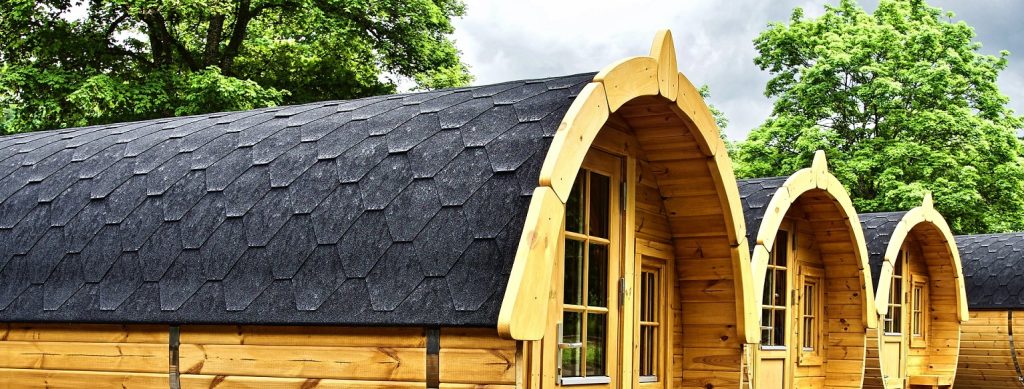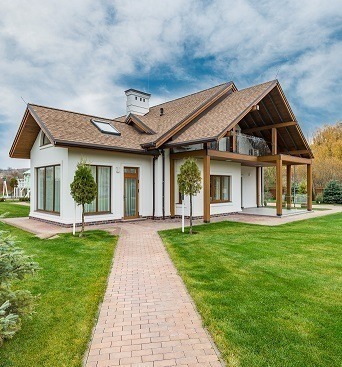
A small home is a cozy home. It has other advantages, too.
If you’re tempted to move to a bigger place, or to spend as much on a home as your mortgage lender will allow, here is a case for keeping a smaller residential footprint.
Buyer’s Dilemma: Big Home Versus Small Home
If it’s your good fortune to have a choice, should you pick the bigger home? Or could it be better to buy a smaller house, condo, or townhome and keep that extra cash for other needs and investments?
It can be tempting to buy the priciest and largest home. Yet bigger isn’t always better. The bigger the home, the bigger the…
- Closing costs.
- Interior decor and furnishing costs.
- Home or condo owner’s policy premiums.
- Property taxes and property tax hikes.
- Costs of interior heating and air conditioning.
Necessary expenses for upkeep and renovation come into play, too. A bigger home means costlier upkeep. Every window and door, each appliance, each system of wires, each tile… everything will likely need maintenance or replacement at some point. Preventative maintenance is expensive, and repairing broken systems is more so. A big house needs constant cleaning. Big yards cost big money for landscaping. The more footage and acreage a buyer takes on, the more systems and items that need regular attention.
On top of all that, the economy is uncertain — whether we’re talking about the U.S. or the world as a whole. So, if your choice is between a smaller versus a bigger home for sale, have a talk about your goals and risks with your financial pro. At the very least, carefully plot out what you’d need to do if any major aspect of your life took an unexpected turn.
Bigger Homes Aren’t Always the Best Investments
Buying a big home so that it will appreciate in value? Real estate is generally considered an important investment. Still, it’s a good policy to only buy as much space as you can put to use.
Especially now. A strong trend has formed in real estate. Many of today’s home buyers — in all age groups — are skipping the large homes. Smaller homes are where the demand is unrelenting. The upshot? Getting a mansion could lead to a lower proportionate return on investment than buying a compact yet comfortable space to live in.
So, the buyer needs to ask if tying up a lot of value in a home purchase to reap a future reward is likely to compensate for the stress of overspending on real estate today. And holding real property is usually just one of a set of big goals, along with several others. These could be major moves in the future; going back to school; saving for a child’s education; etc.
Yet another consideration? The value of keeping some cash freed up for financial investments other than real estate.
Keeping Up With the Joneses Isn’t the Best Way to Choose a Home

The size of an average home today is about 2,500 square feet. One who buys a smaller home could look at the averages, and think: Is it a bad look to fall behind my peers?
But that’s ego talking — if buying a big home really isn’t necessary. As one real estate writer put the point, the new curb appeal is “curbing your real estate ego.” (Ba-boom tish!)
Conspicuous consumption in home buying is quite lucrative for real estate companies. But consider these factors in a sound and conscientious purchase decision:
- Location. Moving to an inconvenient spot just to get a bigger home is a recipe for buyer’s remorse. A home’s surroundings, amenities, and location all factor into a decision the buyer can live with.
- Lifestyle. Personal habits, needs, aesthetics, work style, and goals… these all go into the best pick for a home. It’s not about 2,500 square feet. It’s about optimizing the space, and harmonizing it with a whole lifestyle.
- Environmental awareness. There’s no way around it: a big home consumes a lot of energy. Big homes use more materials to build. And they typically take up more land. By living in a home where all the space is in use, the buyer keeps a smaller environmental footprint, and makes the most cost-efficient purchase.
- Social awareness. An indirect effect of buying no more space than necessary is a fuller use of housing inventory. Instead of buying a house that’s oversized, the Goldilocks choice is a house that’s sized just right.
It’s up to each person to find reason to agree with these points or not. If you do decide that less is more, then let your agent know your priorities up front. That way, you’ll be less likely to be asked to tour big homes simply because you have the funds.
When Might Bigger Really Be Better?
There are situations in which bigger really is better. Some owners are keen to use parts of their real estate as vacation rentals. They might want to get started with a platform like Airbnb, or operate a home-based bed-and-breakfast business.
Others have guests for whole seasons, or regularly host community events or parties. Some house international students. Some are happy to have easements on their properties to enable public access to a trail or a beach. Some have vast and vibrant native gardens. Some have their businesses at home and need places to meet and work with others.
Some homeowners wish they could open their home to the older or younger generation of family, or to friends. In this case, buying a big house is just one option. Alternatively, an accessory dwelling unit could fit the need. Just be sure to buy a property with zoning ordinances that suit this goal.
Garage studios, carriage houses, in-law cottages… Fully habitable residences can be bought as manufactured homes. Or, for under $35K, a homeowner can create an accessory dwelling unit with a kit that becomes a 400+ sq ft guest home or apartment. Check for deed restrictions before setting goals involving building or renting out an extra unit.
That said, getting a big house for the youngsters isn’t necessarily a must. For kids, a cozy home can feel fun and filled with activities that become warm memories. And a compact home office can be perfectly functional for plenty of business owners, knowledge workers, and creatives.
No One Size Fits All
At the end of the day, every buyer has a unique set of priorities. There are averages, but no perfect size to suit every lifestyle.
Yet it’s hard to regret the Goldilocks purchase. Homeowners who go big, then later try to downsize, might find that a large home is not the asset it appeared to be. When it’s time to sell, more buyers will be looking for smaller homes — because more buyers can afford them.
Supporting References
Stacey Freed for Realtor.com® Bigger Isn’t Always Better: What Today’s Buyers Are Looking For in a Home (Jun. 1, 2022).
Laura Mueller for Move, Inc. via Moving.com, part of the Realtor.com® network: Six Reasons Why Buying a Bigger House Isn’t Always a Good Idea (Nov. 8, 2019).
And as linked.
Photo credits: MemoryCatcher via Pixabay, and Max Rahubovskiy, via Pexels.
